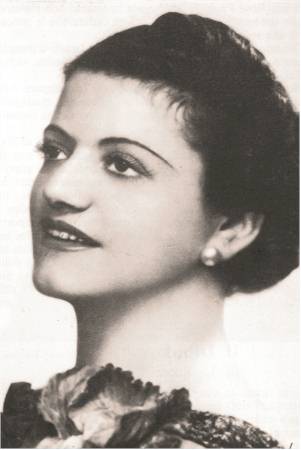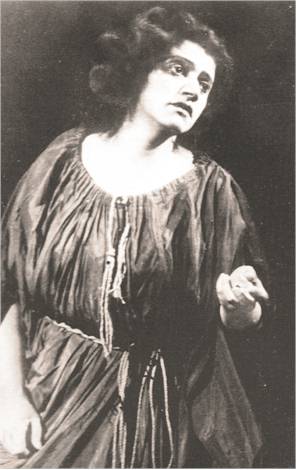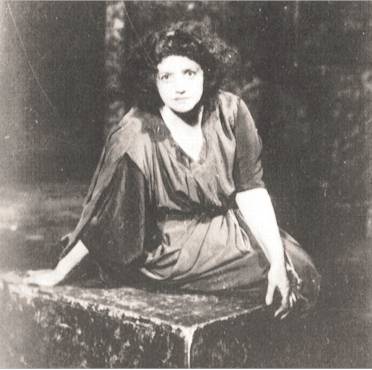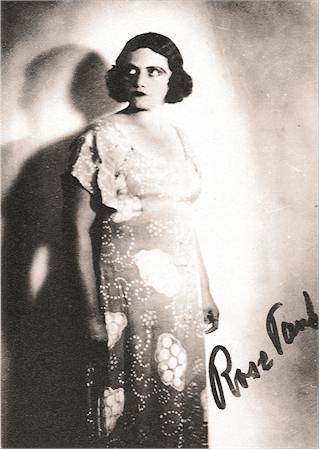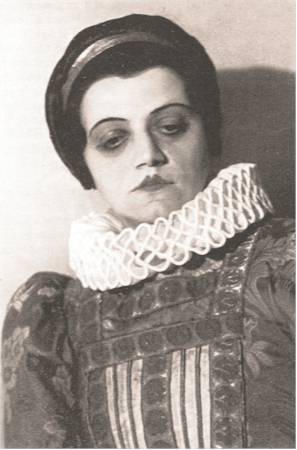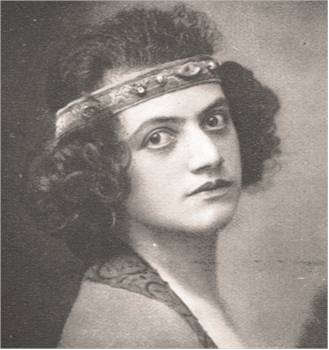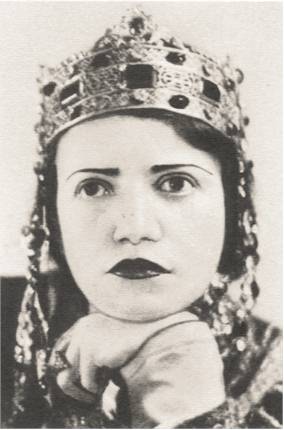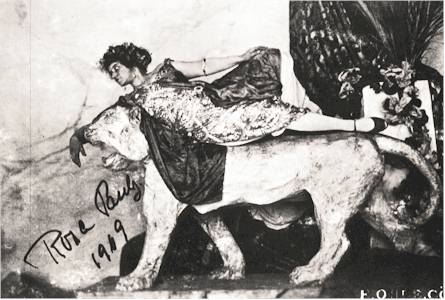Hungarian soprano, 1894 - 1975
Rose Pauly - Dramatic intensity Biographical notes: She was born Rose Pollak in Eperjes, Hungary, and studied in Vienna with the famous contralto
of the Vienna Court Opera, Rosa Papier-Paumgartner. Her debut took place in Hamburg as Aida, soon afterwards she debuted in Vienna in 1918, as Desdemona. Thereafter she passed rapidly
through Hamburg, Gera (where she sang in the first German performance of Janacek’s Kátya Kabanová), Karlsruhe, Cologne and Mannheim before returning to Vienna. In those years she sang
Tosca, The Empress in Strauss’ Die Frau ohne Schatten and Rachel. In 1927 she moved to the Kroll Opera, Berlin, where she appeared as Senta, Donna Anna, Rezia in Weber’s Oberon and
sang her first Elektra under the beaton of Otto Klemperer. Her collaboration with Clemens Krauss at the Berlin State Opera was primarily in the operas of Richard Strauss, not only Elektra
and Salome - but also in Die Frau ohne Schatten, Intermezzo and Die Ägyptische Helena. Her career in Berlin came to an abrupt halt with the arrival of the Nazis in 1933, when Jewish artists
were obliged to flee. She returned to Vienna, this time as Elektra, Martha in d’Albert’s Tiefland, Aida, Marie in Wozzeck (world premiere of the work), Jenufa, Donna Anna (one of her favorite
roles), Senta, Leonore, Carmen, Eboli, Kundry, Turandot, Lady Macbeth and Sulamith in Goldmark’s Die Königin von Saba. In 1933, at Salzburg, she was the Dyer’s Wife in Die Frau ohne
Schatten, reappearing there in 1934 and 1937, on both occasions as Elektra. In 1938 she sang this role at Covent Garden and it was Ernest Newman who spoke enthusiastically about Rose
Pauly’ thrilling performance. In the same year she was Elektra in San Francisco as well as at the Met where she also sang Venus. Afterwards she appeared in Chicago, at the Rome Opera and the
Teatro Colón, Buenos Aires. In 1946, Pauly settled in Palestine. She was active as a singing teacher until her death in 1975. The most celebrated Elektra of the 1930s
“Elektra is a monumental and terrifying work. I simply think of this great character as the ultimate musico-dramatic experience of my career. She engulfed me and I was swept up in terror and beauty of her tragedy at every performance. Dissonant? Taxing? Yes. But it is a masterpiece filled with moments of sublime beauty.” Rose Pauly, Ffar Schmarjahu, Israel, August 1965
“Regarding that seeming mortal feud between the voice and orchestra in those works, Strauss himself counselled me when I studied the role of Salome with him for the first time. “When the orchestra is quite loud”, he said quite simply, “spare your voice - it is impossible to sing against it. Then, in the less orchestral passages, get your voice and let go!” Rose Pauly, Ffar Schmarjahu, Israel, August 1965
As the Dyer’s Wife “Die Frau ohne Schatten, which Richard Strauss considered his greatest opera, is for me the very epitome of such a work, and Barak’s wife is more to me than just an operatic part I have been fond of. With his librettist, Hugo von Hofmannsthal - the poet whose long collaboration with the composer dates from Elektra - Strauss has attained a subtlety of idea and sensibility never before imagined in music. This masterpiece, in my opinion, has no equal for the same kind of immediacy of spirit, directness of association in thought and expression and that poignant intensity which is the true flight of later romanticism.” Rose Pauly, Ffar Schmarjahu, Israel, August 1965
As Eboli in Verdi’s “Don Carlos” (make-up!)
“Rose Pauly était l’intensité faite voix.” André Tubeuf
“I first met Strauss in Garmisch, where he lived. There was to be a performance of Don Giovanni at the 1922 Salzburg Festival with Strauss conducting. I learned the role of Donna Anna in three days and it has remained one of my favorite parts. People do not realize how very fond I have been of singing Mozart. Not long afterwards, while studying his own opera with him, Strauss said to me: ‘Look here, Pauly, you are a great Salome, but actually you are a very different woman. Remember that art is not life.’ I like to remember that.” Rose Pauly, Ffar Schmarjahu, Israel, August 1965 Comment: Rose Pauly made only a handful of records. She was admired for her rich, powerful, and wide ranging voice as well as for her highly dramatic and emotionally stirring stage presence. Her voice ideally suited to parts such as Elektra, Salome, the Dyer’s Wife, Helena and Marie. No wonder that she achieved particularly a reputation as a Strauss singer. The composer himself was full of praise for her and remained a wise and benevolent advisor. However, Pauly had a repertoire of 67 roles (!), some in a number of languages.
As Ortrud
Rose Pauly as Grete in Franz Schreker’s “Der Ferne Klang”
|
|||||||||||||||||||||||||
